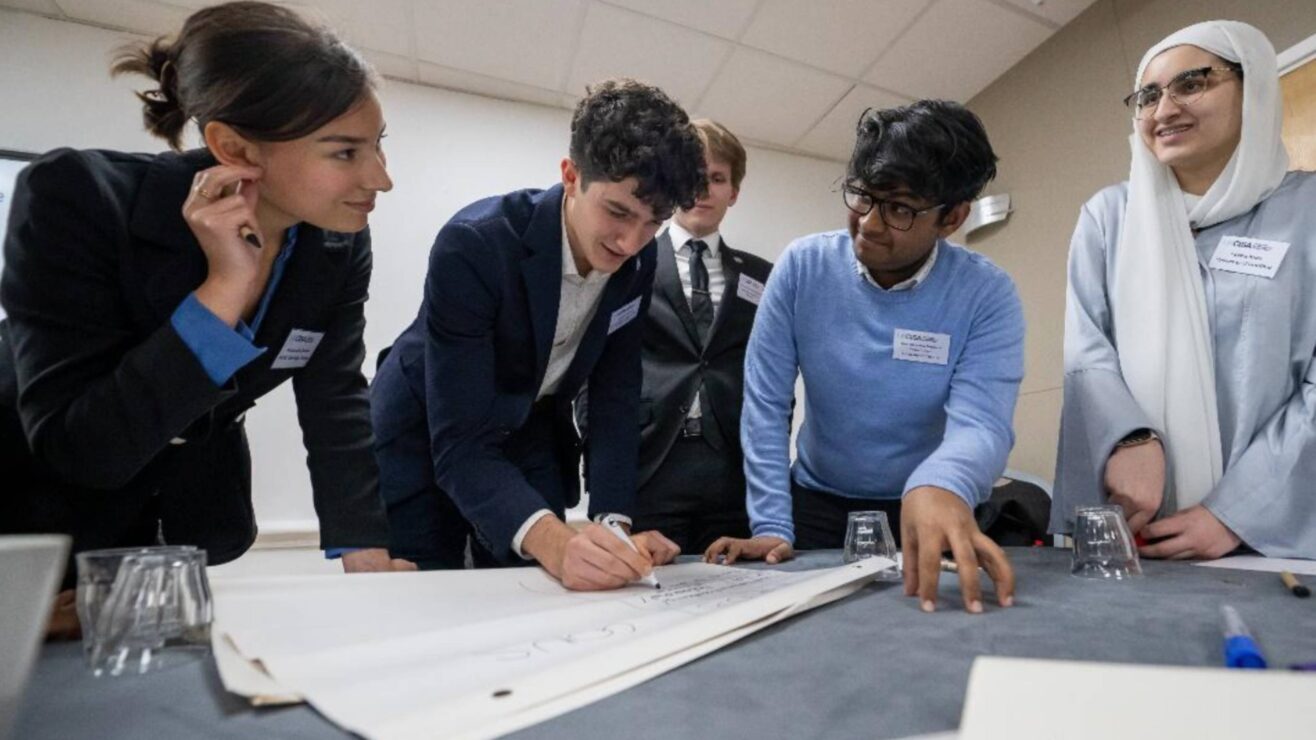Over 150,000 people each year choose to study for a HE qualification in an FE college.
As well as mainstream qualifications such as honours degrees, foundation degrees and higher national certificates and diplomas, colleges also offer a wealth of other higher level qualifications including higher level national vocational qualifications, Scottish vocational qualifications and professional qualifications.
FE colleges are a pathway for a significant proportion of the students entering university. One third of the young people aged under nineteen who enter university do so after completion of a college course. Colleges also pave the way to higher qualifications for many adults through access courses and vocational pathways.
Pathways to success
It should not be underestimated that colleges have the capacity to do more: upskilling; supporting the industrial strategy; offering vocational alternatives locally, and fostering a lifelong love of learning. A high proportion of the tens of thousands of HE students studying in a college come from backgrounds where participation is historically low. Colleges work hard in their local communities to encourage those who have the ability to succeed to take that important first step in raising the level of their qualifications.
By making HE available locally, colleges remove some of the barriers to participation experienced by hard-to-reach students. Studying locally reduces the expense of accommodation, transport, and living costs. For some communities, study away from home is not an option. College-based HE provides a readily available and high-quality alternative. The same applies to many mature students.
A mature option
Returning to study after a long break can be a daunting and sometimes discouraging experience. Drawing on decades of experience dealing with learners of all abilities and all ages, colleges provide support in the skills needed to cope with higher-level study.
High levels of student support coupled with smaller class sizes mean that colleges are well-placed to provide the timely individual attention which can make the difference between success and failure.
College-based HE is an important element of social inclusion, mobility, and cohesion at a local level.
Deep employer links
It also plays an important role in raising the skill levels across a range of industries and professions. Colleges have traditionally focused on vocational and technical areas, providing the skilled individuals needed in local regional and national economies. That focus has been extended to a similar and wide range of higher-level courses.
The HE in FE offer is predominantly vocational and technical. It allows students with a qualification in these subjects at level 3 to progress in cognate disciplines at higher levels, helping businesses to prosper and individuals to build fulfilling and successful careers. It provides an alternative to traditional full-time pathways to higher-level study for those who choose to work at an early stage of their career or who wish to return to study at a later stage.
The part-time hole
The decline in recent years of students choosing to study part-time higher education has hit colleges disproportionately hard. More importantly, a large group of people who in the past could gain qualifications by studying part-time have been denied that chance. Mature learners have been hit particularly hard.
The 2017 HEFCE publication Higher Education in England provides startling evidence of the decline of part-time education. Part-time enrolments fell for the seventh year in succession, marking a decline of 61% since 2010-11. This is compounded by the fact that the majority of these students were studying at a level below honours degree, including certificate and diploma programmes. Even more adverse for the diversity of the HE cohort, most of these students were older and employed, thus impacting on both widening participation and the ability to deliver courses needed by employers to upskill their workforce.
Apprenticeships
The introduction of higher and degree apprenticeships provides another opportunity for college-based HE. These include not only honours degrees but also a range of other qualifications at Levels 4 and 5 such as foundation degrees and higher nationals, plus qualifications at levels 6 and 7. Many colleges have established successful apprenticeship provision. Developing and delivering apprenticeships at these higher levels is a natural extension of that role, opening more doors to individuals who might not otherwise be able to gain a higher-level qualification.
Although higher and degree apprenticeships make up only a small proportion of all apprenticeships they are the fastest growing. The House of Commons library report Apprenticeship Statistics for England published in July reveals that although higher level (level 4-7) apprenticeships made up only 7% of the total, that number had doubled since the previous year, evidence of a trend of continuous if modest growth since 2010-12.
Challenging times
Of course, HE in FE is not without its problems. The demographic downturn has seen increased use by some universities of recruitment strategies such as unconditional offers and year zero programmes. From the emerging evidence, it seems many of students in receipt of such offers are the very ones who might previously have chosen a college route. It remains to be seen whether the additional support and local accessibility afforded by colleges can be replicated by these recruiting institutions. It would be unfortunate, to say the least, if the interests of these individuals were seen as secondary to the achievement of recruitment targets.
Although some colleges have gained awarding powers, usually to for foundation degrees, most are obliged to enter into validation partnerships with universities. Some of these partnerships work well, with mutual recognition of strengths and roles.
Others, perhaps a growing number, falter under the imperative to recruit and fill university places. Colleges increasingly find difficulty in gaining the validations they need to serve their local students and businesses as universities seek to reduce competitive pressure by making validation more difficult to obtain. Colleges also complain that validation processes are expensive and too slow to produce the rapid response needed when dealing with employer demand for courses.
Colleges have a hard-earned place in the HE landscape. They deal with students who might not otherwise participate and provide the higher skills education and training demanded by businesses of all sizes. Let’s hope the post-18 and level 4-5 reviews account for this properly.
Politicians of all hues have professed to love colleges. In many that love has been at best a hard love. The time has now come for the vital role of colleges across all aspects of our education system to be recognised and, in Love Our Colleges week, to have their place in the sun.













Great article. However, FE funding cuts have had a detrimental affect on recruitment and progression.
Great piece as part of our celebration of what colleges do for their communities. Thanks John #LoveOurColleges
Excellent article, encapsulating all the issues we have in HE in the college sector, but also how very important that sector is. Thanks John.
As ever spot on from John Widdowson. Shouldn’t need saying but it does need saying again and again. This provision is too important to be lost from communities, employers and students.
It does need saying repeatedly, and we need to emphasise the role of level 4 and 5 quals in higher education as valuable in their own right. The three-year residential degree is not the only way to do HE and we need to push this message with parents and employers as well as students.